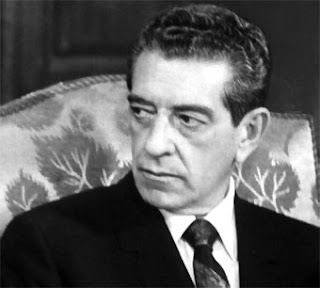¿Y si el hombre no hubiera llegado a la Luna?
No me refiero a esas teorías conspiracionistas que dicen que el alunizaje de 1969 fue grabado en algún estudio de televisión instalado en una base militar norteamericana, bajo la dirección de Stanley Kubrick. Me refiero a la posibilidad real de que al momento de descender, el módulo Águila se hubiera estrellado matando a sus ocupantes. ¿Qué hubiera dicho el gobierno norteamericano? Porque no había ninguna seguridad de que la misión tuviera éxito, y con cientos de millones de personas viendo la televisión en ese momento, algo habría que decir en caso de los astronautas fallecieran.
Era necesario estar preparado por si ocurría lo peor. Y el presidente Richard Nixon tenía a la mano un discurso en el caso de tuviera que anunciarle al mundo el fracaso de la misión Apolo. El documento preparado por H.R. Haldeman, jefe del gabinete de Nixon y Bill Safire, su redactor de discursos, dice:
Fate has ordained that the men who went to the moon to explore in peace will stay on the moon to rest in peace.
These brave men, Neil Armstrong and Edwin Aldrin, know that there is no hope for their recovery. But they also know that there is hope for mankind in their sacrifice.
These two men are laying down their lives in mankind’s most noble goal: the search for truth and understanding.
They will be mourned by their families and friends; they will be mourned by their nation; they will be mourned by the people of the world; they will be mourned by a Mother Earth that dared send two of her sons into the unknown.
In their exploration, they stirred the people of the world to feel as one; in their sacrifice, they bind more tightly the brotherhood of man.
In ancient days, men looked at stars and saw their heroes in the constellations. In modern times, we do much the same, but our heroes are epic men of flesh and blood.
Others will follow, and surely find their way home. Man’s search will not be denied. But these men were the first, and they will remain the foremost in our hearts.
For every human being who looks up at the moon in the nights to come will know that there is some corner of another world that is forever mankind.
Al final del documento se señala que Nixon debía llamar a cada una de las viudas para darles el pésame mientras un sacerdote, ante los millones de televidentes, debía ofrecer una oración por las almas de los astronautas.
Las cosas salieron bien, afortunadamente, y la exploración espacial gozó de una buena etapa durante varios años; pero esa anécdota nos muestra que siempre hay que estar listo para encarar lo inesperado.
Era necesario estar preparado por si ocurría lo peor. Y el presidente Richard Nixon tenía a la mano un discurso en el caso de tuviera que anunciarle al mundo el fracaso de la misión Apolo. El documento preparado por H.R. Haldeman, jefe del gabinete de Nixon y Bill Safire, su redactor de discursos, dice:
Fate has ordained that the men who went to the moon to explore in peace will stay on the moon to rest in peace.
These brave men, Neil Armstrong and Edwin Aldrin, know that there is no hope for their recovery. But they also know that there is hope for mankind in their sacrifice.
These two men are laying down their lives in mankind’s most noble goal: the search for truth and understanding.
They will be mourned by their families and friends; they will be mourned by their nation; they will be mourned by the people of the world; they will be mourned by a Mother Earth that dared send two of her sons into the unknown.
In their exploration, they stirred the people of the world to feel as one; in their sacrifice, they bind more tightly the brotherhood of man.
In ancient days, men looked at stars and saw their heroes in the constellations. In modern times, we do much the same, but our heroes are epic men of flesh and blood.
Others will follow, and surely find their way home. Man’s search will not be denied. But these men were the first, and they will remain the foremost in our hearts.
For every human being who looks up at the moon in the nights to come will know that there is some corner of another world that is forever mankind.
Al final del documento se señala que Nixon debía llamar a cada una de las viudas para darles el pésame mientras un sacerdote, ante los millones de televidentes, debía ofrecer una oración por las almas de los astronautas.
Las cosas salieron bien, afortunadamente, y la exploración espacial gozó de una buena etapa durante varios años; pero esa anécdota nos muestra que siempre hay que estar listo para encarar lo inesperado.



Comentarios
Publicar un comentario
Todos tus comentarios serán publicados, sólo te pido que pongas tu nombre y te portes con los demás tal y como te gustaría que se portaran contigo. Por favor no alimentes a los Trolls. ¡Gracias por participar!